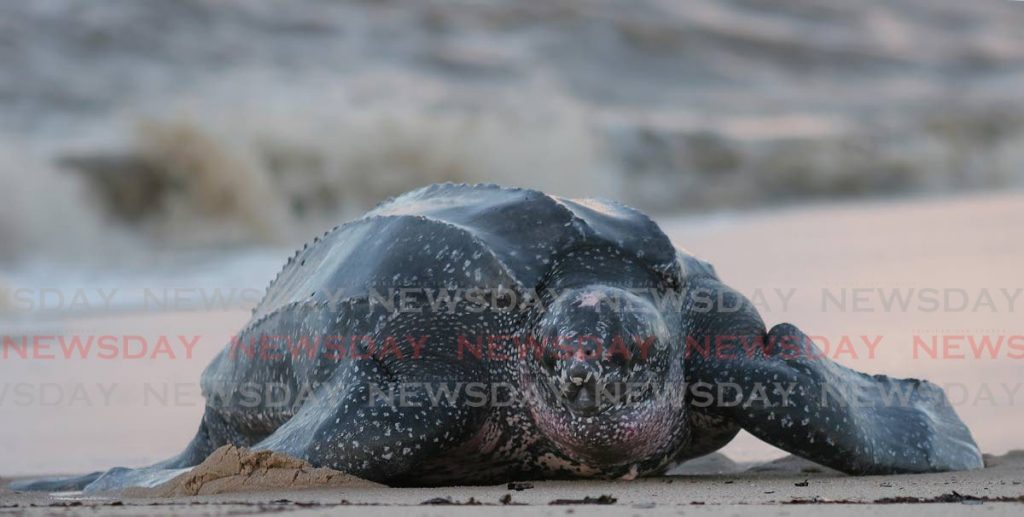Turtle patrols: Tiny step in right direction

The government's decision to allow patrols to protect leatherback sea turtles and conservationists to gather migration data is a welcome move.
In some respects the global pandemic and its slowing of industrial activity, air travel and other human activity has given the environment a short breathing space.
But not the turtles. Poachers were unlikely to be deterred by beach restrictions – in fact, they must have welcomed them – and the only way to protect nesting sea turtles is by actively monitoring the shores they choose to lay their eggs.
The Forestry Division will now oversee the appointment of a task force comprising members across a range of disciplines, including the police, to ensure nesting in 2021 has proper oversight.
It's a move forward in acknowledging the importance of continuity in environmental and habitat monitoring and protection in TT despite the challenges posed by covid19 restrictions.
There have been other efforts at continuity. In Tobago, 2,500 trees were planted along the northeast coast to protect against erosion in September 2020.
The government should go further, by commissioning an evaluation of the impact of the year under lockdown across a range of environmental health indicators. While internationally, covid19 restrictions have been generally good for the global environment, we can make no assumptions about TT, and knowing is the first step to effective action.
On a far larger scale, there is the prospect of rising sea levels. On Thursday Newsday published a report considering the likely impact of rising sea levels by the Geological Society of TT. That may prove to be conservative thinking.
UWI marine biologist Dr John Agard has measured a doubling in expected sea-level rise over the last two decades. A UNDP report on modelling the impacts and costs of a sea-level rise in the Caribbean ponders faster-than-normal sea-level rise, the result of increased “calving” of polar ice due to overall warming of the oceans.
Warming oceans directly affect Caribbean states through potentially devastating fish kills, destruction of the coral reefs that provide habitats for young fish and the proliferation of toxic algae blooms.
Rising ocean heat is also being analysed as a factor in the formation of stronger, longer-lasting hurricanes and tropical storms, several of which have devastated parts of the region in recent years.
Changes in sea level also affect the availability of fresh water, as salt water makes its way further inland both on the surface and into the aquifers of small island states.
The projected doubling of sea-level rise in this century will change ports and beaches in the Caribbean, the way fish school and how sea turtles nest.
There is little TT can do about glaciers melting, but there is more we can do to manage our production of solid waste, currently at a half-tonne per person per year, 68 kg of which is plastic waste that will end up in the sea.
That's a challenge for the state and for us as citizens.


Comments
"Turtle patrols: Tiny step in right direction"